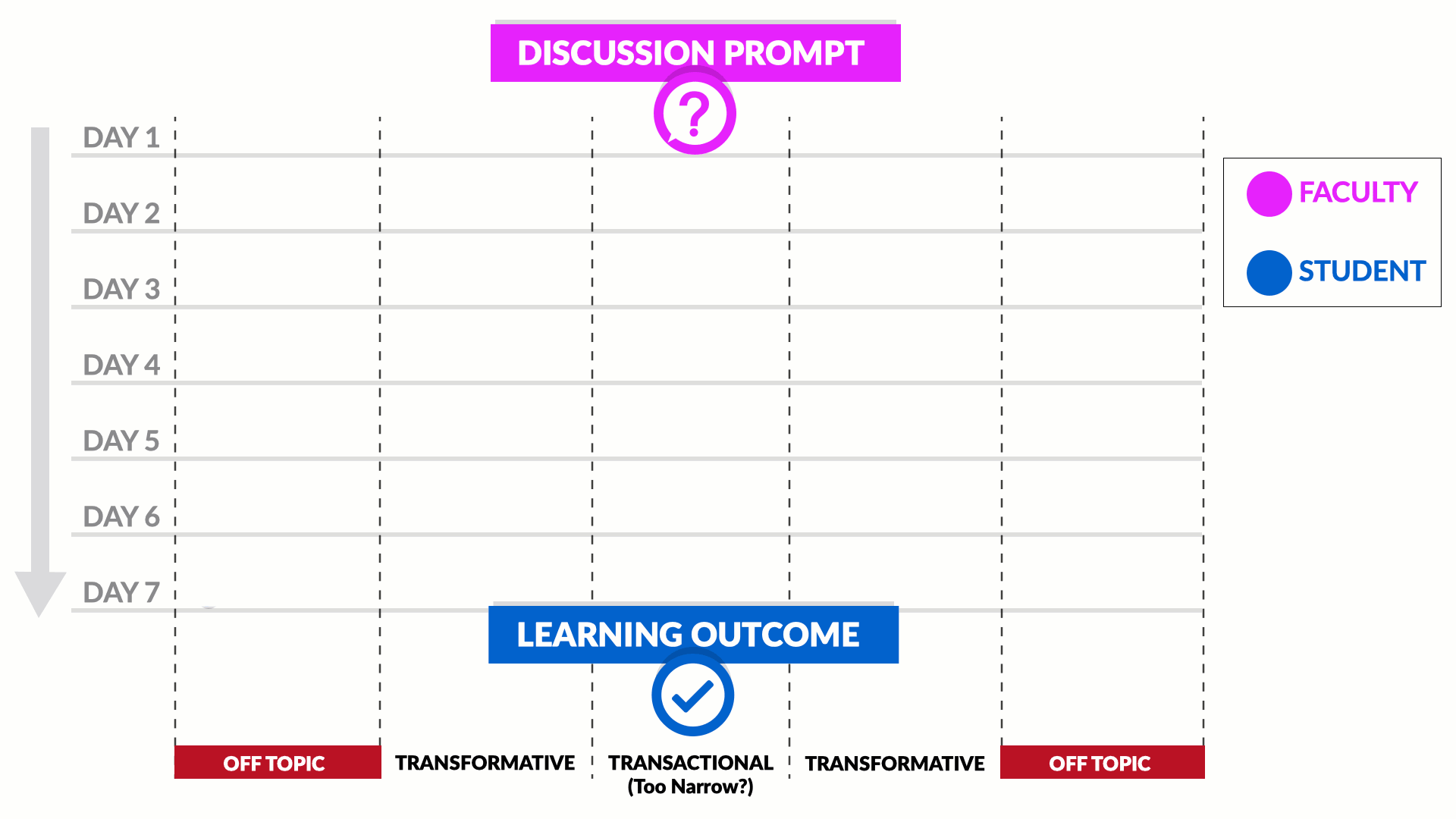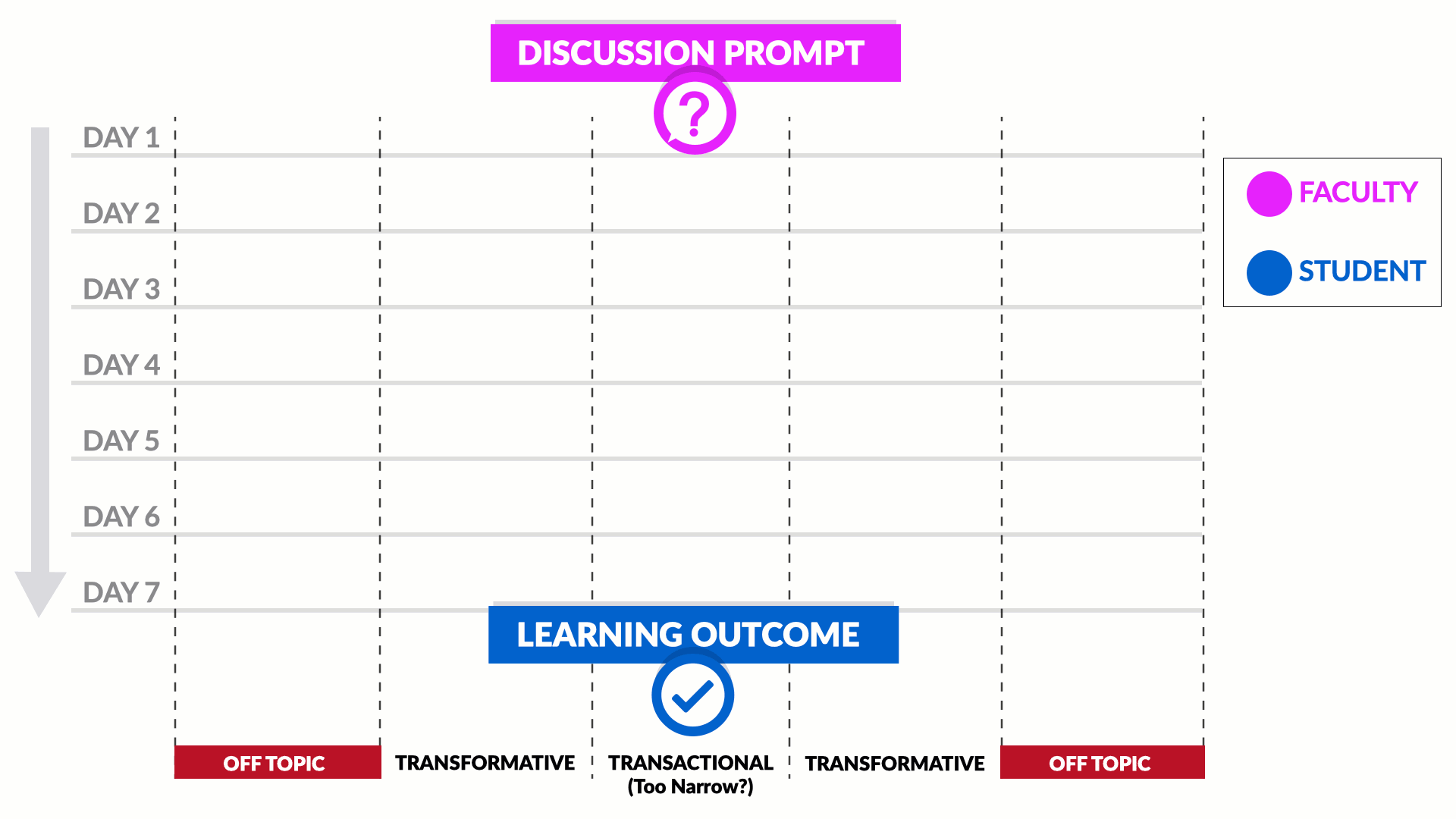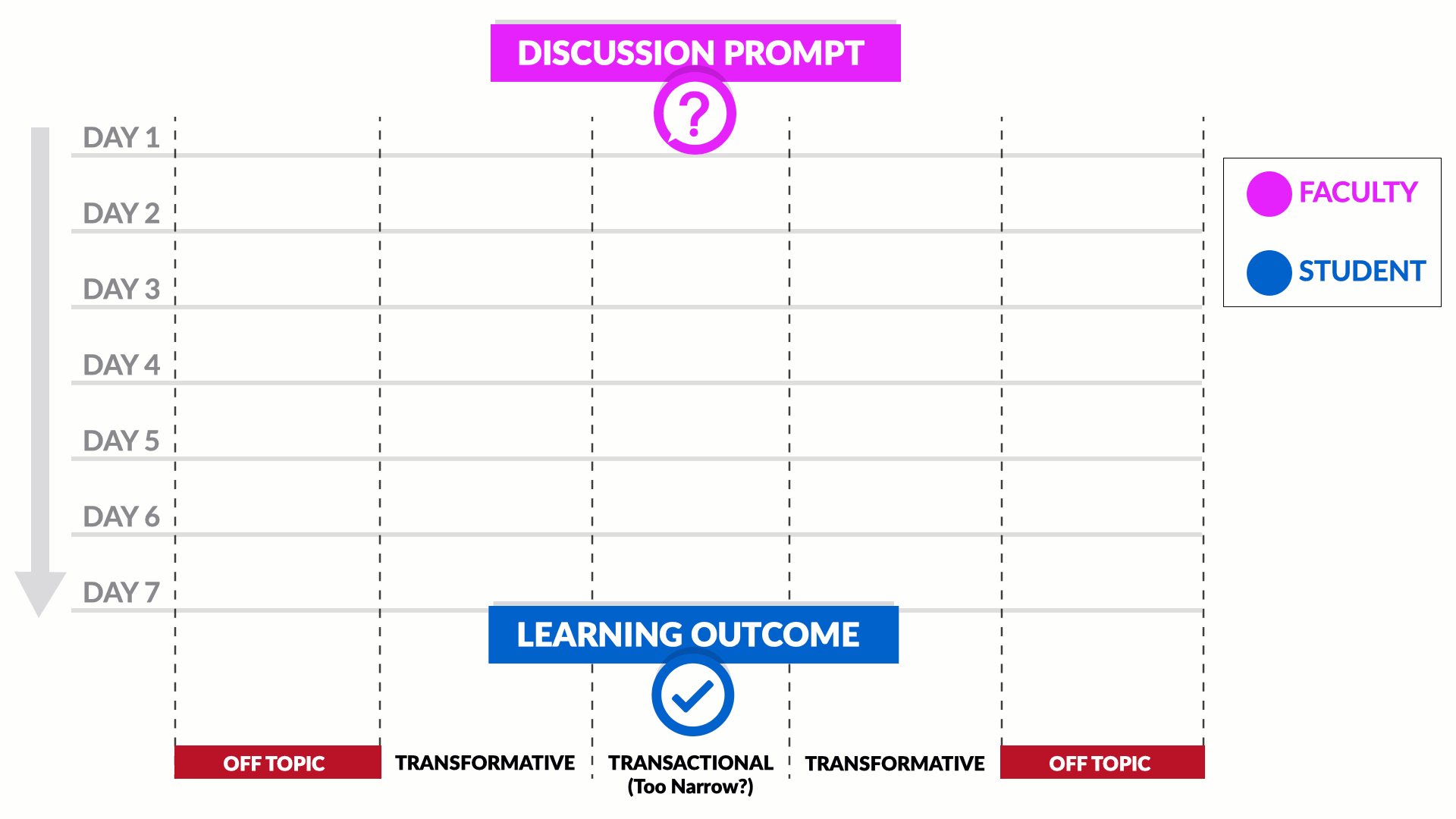Hosting a discussion with your students can be challenging no matter the modality. If you’ve ever awkwardly stood in front of a silent classroom, you know that getting students to engage with you and with each other can be difficult. Despite the challenges, many of us continue to try to get students to share thoughts, ideas, arguments, and opinions that relate to our subject matter. In asynchronous online courses, discussion boards can be one of the best ways to get to know your students and support them as they learn and grow.
As facilitators and instructors, it’s important to remain engaged in your online discussions to help support the most authentic interactions for your students. Here are some strategies you can consider when planning for how you’ll communicate with your students on discussion boards:
Model Ideal Behaviors
You’ve heard the expression, “I’d never ask you to do something I wouldn’t do?” When designing your online courses and planning how you’ll facilitate activities, consider a similar approach. In order to encourage communication between students, you should not only provide your communication expectations to them in the course, but you should then serve as the model for those expectations.
For example, if you expect students to be engaged and posting regularly, you should be present in the discussion–posting responses, answering questions, and guiding incorrect posts. If you want to avoid stagnating conversations and expect students to ask questions and explore ideas, give them examples right in the conversation by providing guidance, sharing outside resources, asking socratic questions, offering relevant quotes and content, and clarifying issues.
Post Strategically
While you should model ideal behaviors and remain present in discussions, this does not mean that you need to respond to every post. Instead, you’ll want to post in a way that keeps discussions transformative for students. Consider the Goldilocks method:
Posting Too Little

When a faculty member or course facilitator is absent from a discussion, the discussion can become unwieldy. Students may post responses that are off-topic, incorrect, or too transactional. Without guidance from their facilitator and a model of what good communication looks like, students are less likely to have a transformative conversation which guides them to their learning outcome.
Posting Too Much

At the other end of the spectrum, if the faculty member or course facilitator posts too often, they may stifle conversation. Given the impression that there is only one “right answer,” students might feel that they need to be transactional in conversation. Leave room for your students to ask questions, guide conversation, and truly interact with one another.
Posting Strategically (Just Right!)

Instead of posting too frequently or infrequently, aim to respond to about 20% of students discussion board prompts. Focus on posts that are beginning to veer off-topic by guiding them back to the task at hand. Also, look out for posts that are too narrow or transactional. If students aren’t digging deeply enough, support them by asking further questions and guiding them to more transformative learning.
Track Your Posts
Another way to better communicate with students on your discussion boards is to begin tracking who you are speaking with on a weekly or daily basis. While this may be more challenging in a large course, faculty or course facilitators in average sized or smaller courses could consider creating a response tracker. Each week, note which students received response posts, feedback, additional resources, guidance, and other items in your discussions.
As communication in your discussion boards improves over time, you can begin to target students that may need additional individual outreach or who have not been in direct communication with you for a few discussions. This can be a helpful reminder for each student that you are there, listening, and ready to communicate.

